-
 Bitcoin
Bitcoin $117700
-1.00% -
 Ethereum
Ethereum $4458
-3.91% -
 XRP
XRP $3.119
0.14% -
 Tether USDt
Tether USDt $1.001
-0.02% -
 BNB
BNB $836.6
-1.56% -
 Solana
Solana $189.5
-3.90% -
 USDC
USDC $0.9998
-0.02% -
 Dogecoin
Dogecoin $0.2335
1.29% -
 Cardano
Cardano $0.9642
1.51% -
 TRON
TRON $0.3539
-1.19% -
 Hyperliquid
Hyperliquid $47.41
-1.84% -
 Chainlink
Chainlink $21.92
-3.28% -
 Stellar
Stellar $0.4286
-0.23% -
 Sui
Sui $3.724
-3.29% -
 Bitcoin Cash
Bitcoin Cash $594.8
-0.78% -
 Ethena USDe
Ethena USDe $1.001
0.04% -
 Hedera
Hedera $0.2501
-2.06% -
 Avalanche
Avalanche $23.96
-4.87% -
 Litecoin
Litecoin $119.0
-2.32% -
 Toncoin
Toncoin $3.473
0.82% -
 UNUS SED LEO
UNUS SED LEO $9.596
0.17% -
 Shiba Inu
Shiba Inu $0.00001301
-0.39% -
 Uniswap
Uniswap $11.03
-0.25% -
 Polkadot
Polkadot $3.935
-2.62% -
 Dai
Dai $1.000
0.01% -
 Bitget Token
Bitget Token $4.564
-1.76% -
 Cronos
Cronos $0.1512
-4.11% -
 Ethena
Ethena $0.7306
-1.09% -
 Pepe
Pepe $0.00001087
-2.68% -
 Aave
Aave $300.2
-4.00%
How long does it take for Ethereum wallet transfers to arrive?
Ethereum transfer times vary greatly, depending on network congestion and the transaction fee (gas price). Higher fees generally lead to faster confirmation (seconds to minutes ideally), while lower fees can result in significant delays (minutes to hours).
Mar 24, 2025 at 04:49 pm
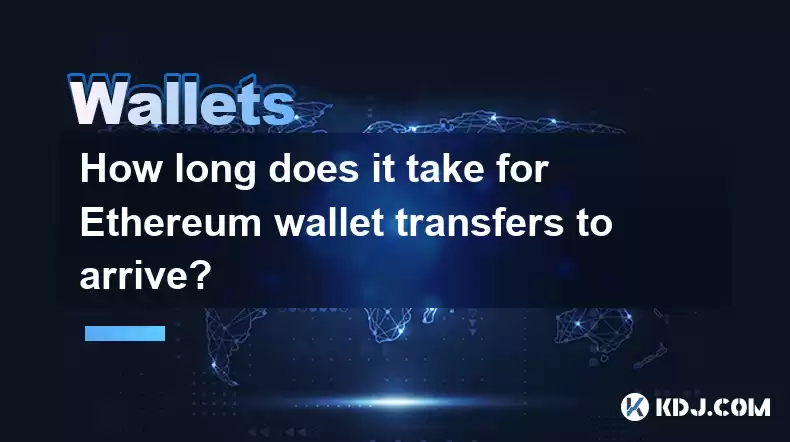
How Long Does it Take for Ethereum Wallet Transfers to Arrive?
The time it takes for an Ethereum wallet transfer to arrive isn't fixed. Several factors influence the speed, primarily the network congestion and the transaction fee (gas price) you pay. A low gas price might mean your transaction waits longer in the mempool (a pool of pending transactions) before miners pick it up. Higher gas prices incentivize miners to prioritize your transaction, leading to faster confirmation.
Network congestion plays a crucial role. During periods of high activity on the Ethereum network, many transactions compete for processing. This backlog can significantly increase the confirmation time. Conversely, during periods of low activity, transactions might be confirmed relatively quickly. The overall state of the network is constantly fluctuating.
The specific type of transaction also affects the speed. Simple transfers of ETH usually take less time than complex smart contract interactions. Smart contracts often require more computational power, hence taking longer to process. This is because they involve more intricate operations compared to simple ETH transfers.
So, how long can you realistically expect to wait? Under ideal conditions with a sufficiently high gas price, a transaction could be confirmed within a few seconds to minutes. However, during peak network congestion, you might experience delays lasting anywhere from several minutes to potentially hours, or even longer in extreme cases.
Let's break down the process step-by-step:
- Transaction Initiation: You initiate the transfer from your sending wallet. This involves inputting the recipient's address and the amount of ETH.
- Broadcast to Network: Your transaction is broadcast to the Ethereum network, entering the mempool.
- Miner Selection: Miners compete to include your transaction in the next block. Higher gas prices increase the likelihood of faster selection.
- Block Inclusion: Once a miner includes your transaction in a block, it's considered pending confirmation.
- Block Confirmation: The block containing your transaction needs to be confirmed by subsequent blocks. The number of confirmations required for security varies; typically, six confirmations are considered a reasonable level of security.
- Transaction Completion: After the required number of confirmations, your transaction is considered complete, and the ETH arrives in the recipient's wallet.
Gas Price Optimization: The gas price you set is a critical factor. It represents the fee you pay to miners for processing your transaction. A higher gas price generally results in faster confirmation times because miners prioritize higher-paying transactions. However, excessively high gas prices are not always necessary and can be wasteful. Monitoring gas price trackers and finding an optimal balance between speed and cost is crucial.
Monitoring Transaction Status: Most Ethereum wallets provide tools to track the status of your pending transactions. These tools display the transaction hash, which you can use to check its progress on block explorers like Etherscan. This allows you to monitor its journey through the network and anticipate its arrival.
Transaction Failure: While rare, transactions can fail. This can occur due to insufficient gas, incorrect recipient address, or other errors. If your transaction fails, you’ll typically see an error message in your wallet. The ETH remains in your sending wallet, and you can usually retry the transaction with adjustments.
Estimating Arrival Time: There's no precise formula to predict the exact arrival time. Real-time network conditions and your chosen gas price are the primary determinants. While you can use gas price trackers to gauge current network congestion, remember it’s still an estimate. Patience is essential when dealing with blockchain transactions.
Factors Affecting Transaction Speed:
- Network Congestion: High network activity slows down transaction processing.
- Gas Price: Higher gas prices prioritize your transaction, leading to faster confirmation.
- Transaction Complexity: Simple ETH transfers are faster than complex smart contract interactions.
- Miner Activity: The number of active miners and their processing power influence confirmation speed.
- Block Time: The average time it takes to create a new block on the Ethereum network (currently around 12-15 seconds).
Frequently Asked Questions:
Q: What happens if my Ethereum transaction doesn't arrive?
A: If your transaction doesn't arrive after a reasonable time (considering network conditions and gas price), check your transaction hash on a block explorer like Etherscan. If it's not found or shows as failed, contact your wallet provider for support.
Q: How can I speed up my Ethereum transaction?
A: The most effective way to speed up an Ethereum transaction is to increase the gas price. However, be mindful of the cost implications. Monitor gas price trackers to find a balance between speed and cost.
Q: Is there a guaranteed time for Ethereum transactions?
A: No, there's no guaranteed time. The time it takes varies depending on network conditions and the gas price you set.
Q: What is a gas price, and why is it important?
A: Gas price is the fee you pay to miners for processing your transaction on the Ethereum network. A higher gas price increases the likelihood of faster confirmation.
Q: What is the mempool?
A: The mempool (memory pool) is a temporary holding area where pending Ethereum transactions wait to be included in a block by miners.
Q: How many confirmations are typically needed?
A: While one confirmation is technically sufficient, six confirmations are generally considered a safe threshold to ensure the transaction's irreversibility.
Q: What should I do if my transaction fails?
A: Check the error message provided by your wallet. Common causes include insufficient gas or an incorrect recipient address. You can usually retry the transaction after correcting the issue.
Q: Can I cancel an Ethereum transaction?
A: You generally cannot directly cancel a pending Ethereum transaction. However, you can sometimes replace it with a new transaction offering a higher gas price to prioritize its processing.
Disclaimer:info@kdj.com
The information provided is not trading advice. kdj.com does not assume any responsibility for any investments made based on the information provided in this article. Cryptocurrencies are highly volatile and it is highly recommended that you invest with caution after thorough research!
If you believe that the content used on this website infringes your copyright, please contact us immediately (info@kdj.com) and we will delete it promptly.
- Kazakhstan's Crypto Leap: Bitcoin ETF and Central Asia's Digital Finance Future
- 2025-08-13 12:45:19
- BlockDAG Presale Blazes Past $371M: Fundraising Frenzy Fuels Crypto Sensation
- 2025-08-13 13:05:21
- Meme Coins: Chasing the 2025 Surge – Which Will Moonshot?
- 2025-08-13 10:25:23
- Bitcoin's Wild Ride: Rally, Pullback, and What's Next
- 2025-08-13 10:25:23
- Bitcoin, Bitmax, and Institutional Demand: A New Era of Crypto Investment
- 2025-08-13 10:45:12
- Solana, ROAM, and Airdrops: What's the Buzz in 2025?
- 2025-08-13 11:35:13
Related knowledge
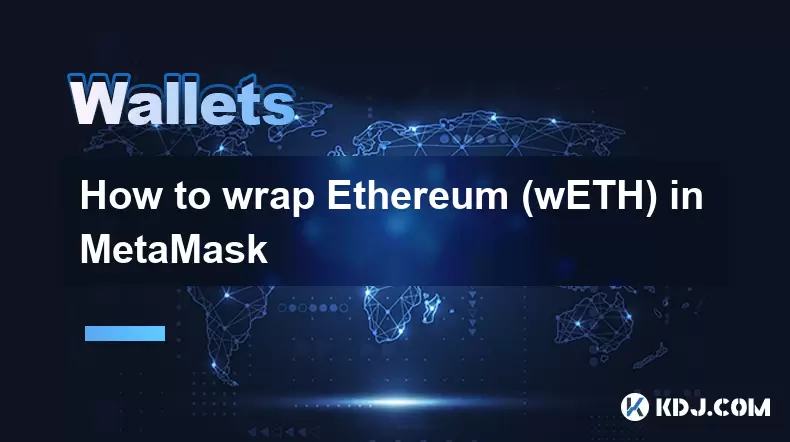
How to wrap Ethereum (wETH) in MetaMask
Aug 13,2025 at 11:36am
Understanding Wrapped Ethereum (wETH)Wrapped Ethereum (wETH) is a tokenized version of native Ethereum (ETH) that conforms to the ERC-20 standard, ena...

How to manage your portfolio in Exodus wallet
Aug 08,2025 at 10:07pm
Understanding the Exodus Wallet InterfaceThe Exodus wallet is a non-custodial cryptocurrency wallet that supports a wide range of digital assets. When...
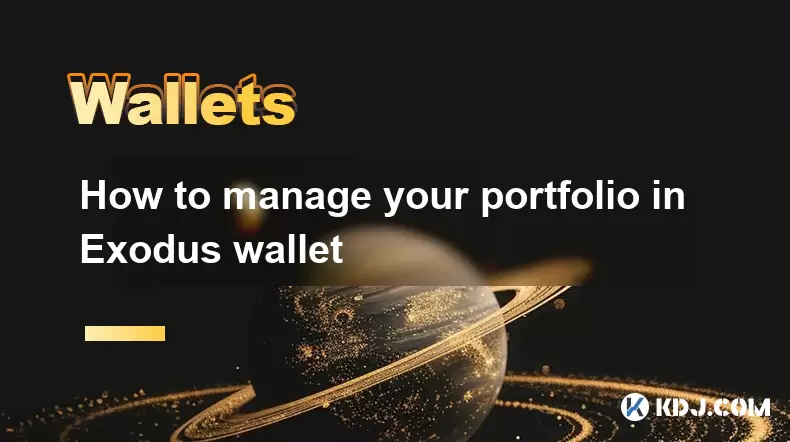
How to manage your portfolio in Exodus wallet
Aug 13,2025 at 11:35am
Understanding the Exodus Wallet InterfaceThe Exodus wallet is a non-custodial cryptocurrency wallet that supports a wide range of digital assets. Upon...

How to reset your MetaMask password
Aug 08,2025 at 01:28pm
Understanding the MetaMask Password Reset ProcessMany users confuse the MetaMask password with the seed phrase or private key, but they serve differen...
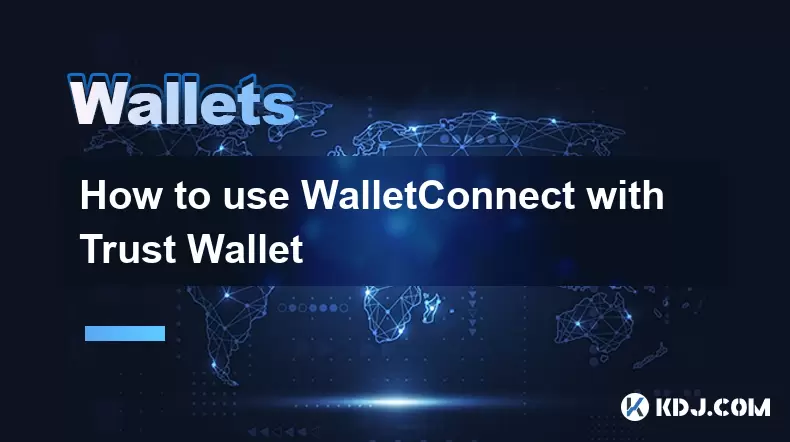
How to use WalletConnect with Trust Wallet
Aug 13,2025 at 01:07am
What Is WalletConnect and Why It Matters for Trust Wallet UsersWalletConnect is an open-source protocol that enables secure communication between dece...
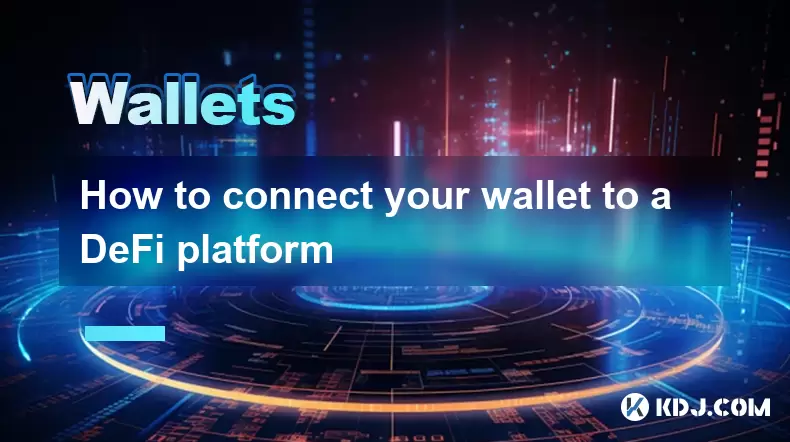
How to connect your wallet to a DeFi platform
Aug 13,2025 at 11:36am
Understanding Wallet Compatibility with DeFi PlatformsBefore connecting your wallet to any DeFi platform, it's essential to ensure your wallet is comp...

How to wrap Ethereum (wETH) in MetaMask
Aug 13,2025 at 11:36am
Understanding Wrapped Ethereum (wETH)Wrapped Ethereum (wETH) is a tokenized version of native Ethereum (ETH) that conforms to the ERC-20 standard, ena...

How to manage your portfolio in Exodus wallet
Aug 08,2025 at 10:07pm
Understanding the Exodus Wallet InterfaceThe Exodus wallet is a non-custodial cryptocurrency wallet that supports a wide range of digital assets. When...

How to manage your portfolio in Exodus wallet
Aug 13,2025 at 11:35am
Understanding the Exodus Wallet InterfaceThe Exodus wallet is a non-custodial cryptocurrency wallet that supports a wide range of digital assets. Upon...

How to reset your MetaMask password
Aug 08,2025 at 01:28pm
Understanding the MetaMask Password Reset ProcessMany users confuse the MetaMask password with the seed phrase or private key, but they serve differen...

How to use WalletConnect with Trust Wallet
Aug 13,2025 at 01:07am
What Is WalletConnect and Why It Matters for Trust Wallet UsersWalletConnect is an open-source protocol that enables secure communication between dece...

How to connect your wallet to a DeFi platform
Aug 13,2025 at 11:36am
Understanding Wallet Compatibility with DeFi PlatformsBefore connecting your wallet to any DeFi platform, it's essential to ensure your wallet is comp...
See all articles

























































































